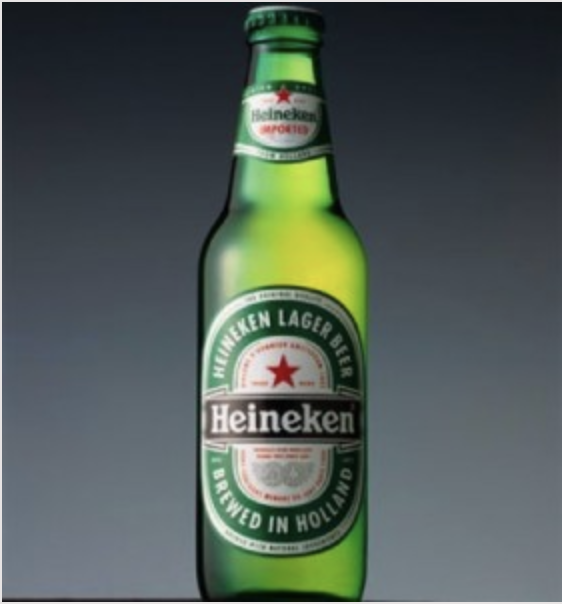A Heineken from my Church on Father’s Day
My church gave me a Heineken for Father’s Day with a nice ribbon tied around it.
I’m not a big beer drinker (I prefer red wine) but did appreciate the gift nonetheless, as did all the other fathers in my church, an Eastern Orthodox mission in Chattanooga with about 30 or 40 regular attenders.
It was no big deal. Just a nice gift, like a box of chocolates or something. It was only after a few seconds of looking at it that I began to chuckle: I just got a beer from my pastor.
In the Orthodox tradition (this one more of the Russian strain), there is just simply no stigma attached to alcohol. After our biggest feast of the year, Pascha (Easter), you are likely to see all sorts of wine and beer, and if any Russians are around, you’ll see various celebratory forms of Vodka.
American Christians and Fundamentalists just have a hard time wrapping their head around this one. A beer for Father’s Day? From the church?
I got to telling a few friends about it. Gus and I were on the free shuttle in Chattanooga and I told him about it and he got a chuckle as well.
“Your church gave you a beer for Father’s Day?” asked a lady sitting next to us.
“Sure did,” I replied while she shook her head in bewilderment.
From the front of the bus the driver shouted in a country accent. “Your pastor gave you a beer?”
I answered in the affirmative, leaving him also nonplussed. He brought it up again as we left the shuttle, very confused by the entire concept.
I was raised by a tee-totaling pastor who, quite frankly, had a great heart but bad theology on this matter, especially while I was growing up. (He later mellowed a bit and ended his belief that drinking is a sin. And don’t think I’m always busting on Jack. I have a lot of good to say about the guy--like here.)
But when I grew up, drinking was pretty much sin. Yeah, it was hard to justify from the Bible, so the rationale became: “you can’t be a stumbling block.”
Well, if drinking is not a sin, how can your drinking be a stumbling block? So that didn’t really get much traction.
Then it was: Christians don’t go to parties where there is drinking. That was a pretty clever strategy to keep kids away from places where they just might be likely to sire a kid and ruin their future. But parents should just couch it like that. Don’t lay the blame on beer.
Years later, I reached the conclusion that this tacit doctrine of “Christians don’t drink or smoke” was a rather handy concept to avoid the really tough commands of Christ that are, in fact, front and center in the gospels. Thou shalt not drink is nowhere to be found, but “love your neighbor” is rather prominent and “love your enemies” can even be found a few times.
The reason the vice doctrine is so handy is because many of us are sure to lose the other contest. In fact, a lot of those people at the parties that smoke and drink are probably a whole lot nicer, more patient, more gentle, less judgmental, and much closer to the lifestyle of loving your neighbor and your enemy.
Yep, it’s a good bit easier to change the rules to “don’t drink and smoke.”
For years, I viewed this whole thing as a simple wrong view of Scripture that denies a lot of people a pleasure that God never condemned.
Now, however, I view it a bit more seriously. I think it is a destructive teaching. It empowers the ancient gnostic heresy that there is something inherently evil about creation, about our bodies. So whether it’s eating or drinking, creating wealth, sex, smoking or gourmet coffee, these Christians say it’s bad. (Well, maybe not eating and coffee).
But the truth is that creation is good and Christ came to endorse the body and to redeem it.
I’m told the early Christians condemned a heresy called “encratism” which espoused the teaching that drinking alcohol is sin. I’m not surprised. When you think about it, it is actually rather scary that the one thing in creation that Christ would choose as the symbol/metaphor/element-turned-to-his blood (take your pick) is the very thing that many Fundamentalists decry as evil.
It makes me think of the verse saying woe to those who “who call good, evil and call evil, good.”
So, these days I think there may be someone and some thing more sinister behind this drive to condemn wine and alcohol.
That being said, I’m also way past and way over the “Christian sophisticate” routine of mocking Fundamentalists and arrogantly flaunting one’s freedoms. That’s certainly not love, either. And that’s what made getting that beer at church so interesting. No one was trying to make a point. No one was even thinking about it. It was simply a nice gift.
On a side note, the idea of using grape juice instead of wine for communion was unheard of until the mid 1800s. Do you know who the biggest supporter was of the movement to make the change? Mr. Welch.


